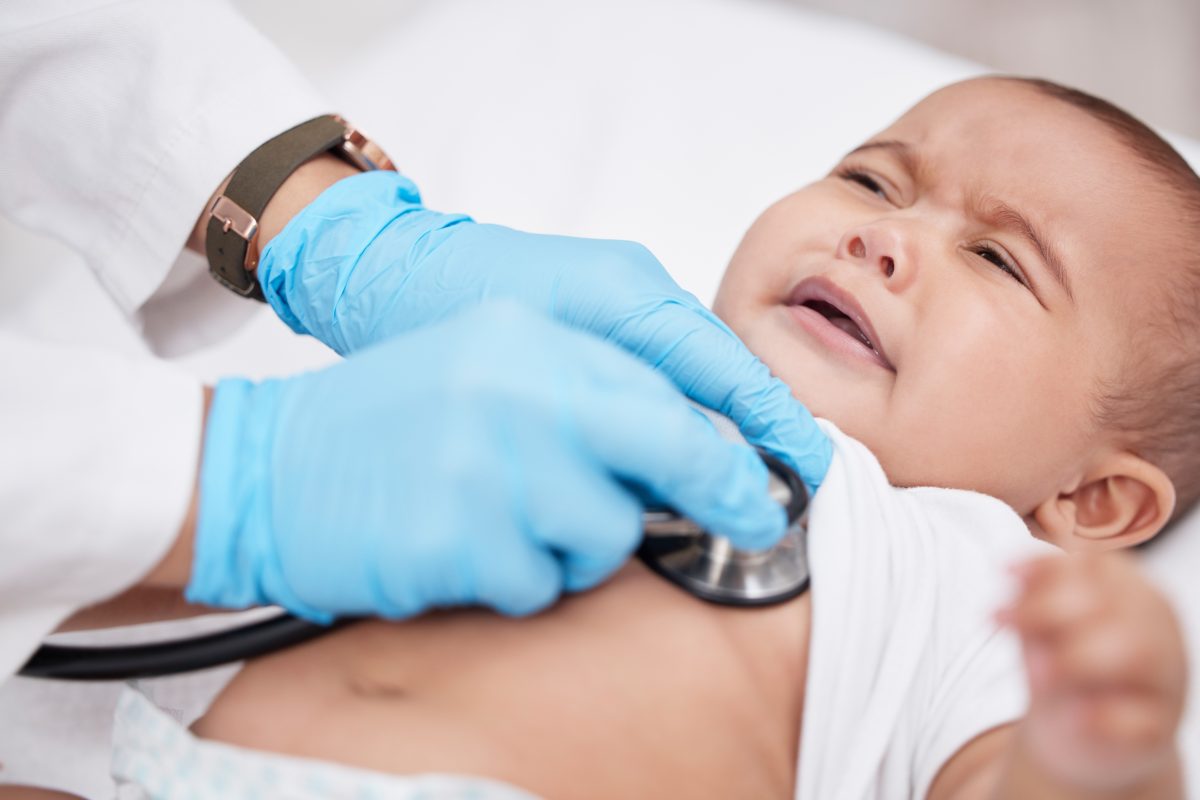
Young children are especially at risk to severe complications from whooping cough. Photo: YuriArcursPeopleimages.
There has been a tenfold increase in Canberrans who have reported being infected by whooping cough (pertussis) in 2024 compared to last year, as experts urge all residents to keep up to date with their vaccinations.
So far this year, 308 people in the ACT have reported having the lung disease, compared to 29 people in 2023.
Overall in Australia, there have been more than 41,000 cases in 2024, the highest on record.
Whooping cough is a highly contagious respiratory tract infection. An infected person can have a cough that lasts for months that may have a ‘whoop’ sound. The disease can be fatal for babies, with vaccination being the best form of protection.
The Immunisation Foundation of Australia has released it 2024 Whooping Cough Report Card, which reveals a major spike in cases among school-aged children, with nearly 40 per cent of notifications of the so-called ‘100-day cough’ recorded in 10- to 14-year-olds.
Dr Laurence Luu, a lecturer at University of Technology Sydney, says an epidemic of whooping cough was being compounded by a drop in community vaccination rates against the infection that can leave people of all ages seriously ill.
“Given the significant rise in whooping cough cases, current vaccination rates are a major concern,” he said.
“While we do an incredible job protecting newborns and infants, re-vaccination or ‘booster’ rates are alarmingly low.”

Whooping cough rates are skyrocketing across Australia. Photo: Immunisation Foundation of Australia.
Research shows that in 2023, one in four adolescents turning 13 years of age missed out on their whooping cough booster, while only one in five Australians aged over 50 years is up to date for whooping cough vaccination.
The ACT has the highest vaccination rate for one-year-olds (97 per cent) in Australia but booster rates among adults remain low.
The Immunisation Foundation of Australia recommends adults get a booster shot at least every 10 years to maintain protection against the bacterial infection.
Dr Luu said whooping cough was more contagious than influenza, measles or COVID-19, “which means it can spread like wildfire”.
He warned that record levels of infection were unlikely to abate, with the spring and summer months often associated with a spike in cases, and November usually being the worst month for whooping cough.
The findings are of particular concern to Immunisation Foundation of Australia founder Catherine Hughes AM.
During the last epidemic, Ms Hughes’ four-week-old son Riley died from whooping cough complications.
She says that despite subsequent improvements in the prevention of whooping cough in infants and pregnant women, whooping cough remains a public health threat in Australia.
“Whooping cough can be deadly for infants and can lead to severe illness in older children and adults – especially those with asthma, who are four times more likely to be infected and have a higher chance of being admitted to hospital,” Ms Hughes said.
As symptoms of whooping cough don’t appear immediately (often for a week or two following infection), the bacteria is easily spread and, once infected, a person can remain contagious for three weeks or until they complete a course of antibiotics.
Whooping cough is a nationally notifiable disease, meaning doctors must report cases to a national surveillance system when diagnosed.















